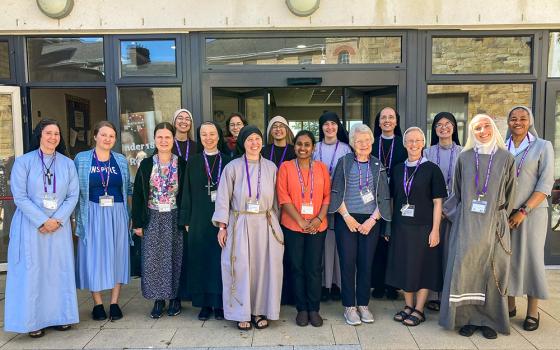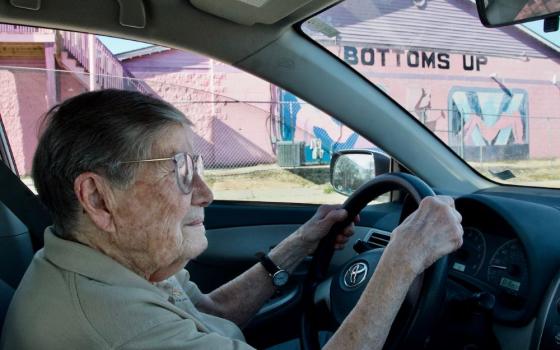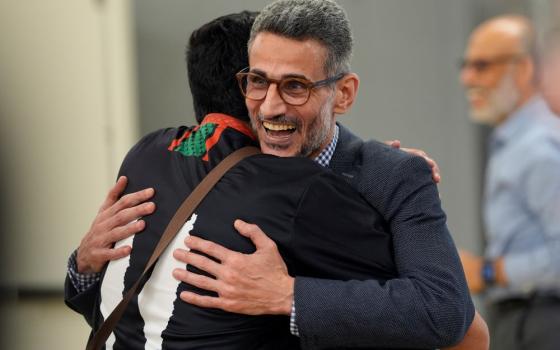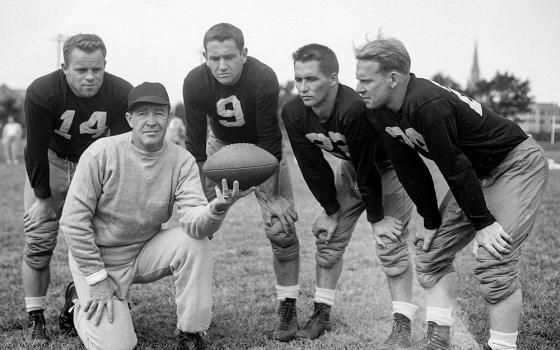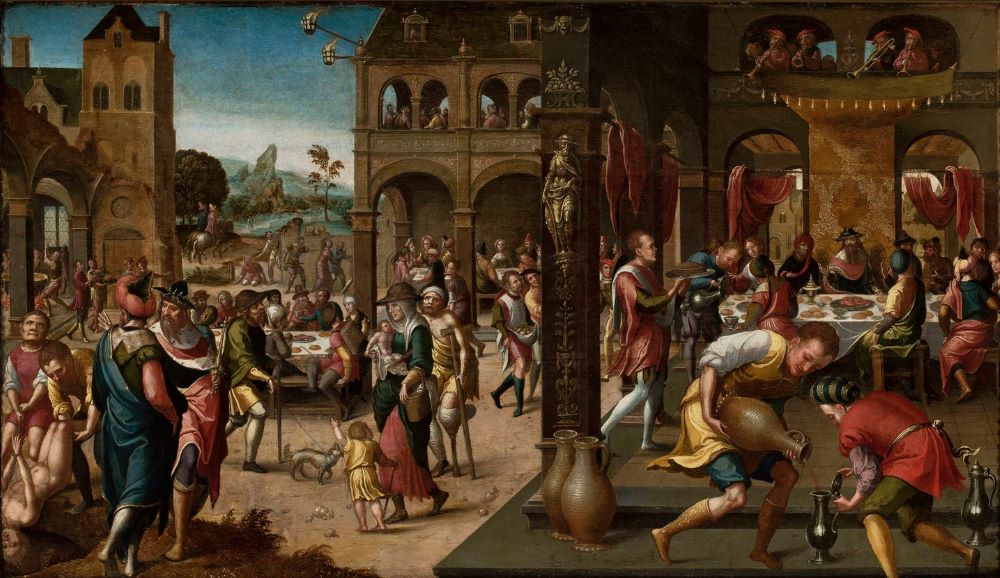
"Parable of the great banquet, Anonymous (Artvee)
"Carpe diem. Seize the day!"
In the movie, "Dead Poets Society," Robin Williams made that phrase his motto and did all he could to help his students understand what it meant. Unlike Ben Franklin's preachy, "Don't put off until tomorrow what you can do today," "Carpe diem!" reels with urgency. So too, Jesus, when he uttered his enigmatic, "Strive to enter through the narrow gate, for many … will not be strong enough." Jesus said that in response to someone who asked, "Will only a few be saved?"
What was behind that question? Did it come with a side dish of, "Am I in the in-crowd?" or was it like the question asked by the lawyer (Luke 18:18), "What must I do to be saved?"
A grammar teacher would point out that the first question differs from the other two because it is in the passive voice — the asker does not assume that s/he can achieve salvation alone, it is something given, not earned. When we think about that, it seems that the poor soul asking this has a rather muddled way of thinking: If it's all up to God, why should anyone worry about how many?
This leads us closer to the heart of the matter. Underneath, it seems that the questioner was trying to separate the sheep from the goats: "Who should I admire and hang out with, and who can I discount and avoid?"
In response, Jesus told a story. (That was his method: Confuse the self-assured with a riddle that exposes them to themselves.)
Jesus spun a tale about a householder who threw a huge party. There didn't seem to be any entrance requirement except to show up on time. The partygoers came from all over — not just old friends, but folks from the far reaches of the world — as in another story (Luke 14:15-24), there would have been rich and ragged, women and men, Jews and Gentiles, cardinals and choir girls, all without distinction.
What disqualified the excluded ones? Sometimes a country song says it best. In this case, we might listen to Cole Swindell's "Love You Too Late." Along with the title, the best line for today's Gospel is, "I can't take back what I never said, but if I could, man I would."
That identifies the problem of the folks who were locked out. The issue was not what they had done, but what they had not done. Like the Pharisee of Luke 7:36-47, they ate and drank in Jesus' company and heard his teaching. But eating and drinking do not automatically make for communion. Hearing does not imply heeding. Thus, when the master of the house says, "Go away," he censures them with the tragic words, "I do not know where you are from."
The house was filled with people from north, south, east and west. Some must have been unfamiliar to the master, not to mention to one another. Yet, they showed up on time. Celebrating inside, they were doing what they had done before they got the invitation: open to something new they were enjoying the master's style of communion.
Jesus had made a story of Isaiah's description of God's plans for humanity. God's desire is to gather everybody from every part of the world: evangelists and pagans, hostages and the people who release them, refugees and ICE officials, all who long to enjoy life as a banquet prepared by God.
Thus says the Lord, "Carpe diem!"
Advertisement
Our question is, "What is ours to do today?" According to Isaiah, God knows our works and our thoughts. The "our" in that sentence is all-inclusive. God pays attention to each and every one of us — including those already come and gone and remains concerned for those yet to be born.
For some, that's a fearsome thought. Those who are afraid probably go to church and hear Bible stories, but they've missed Jesus' message. For too many, religion is a way to save their skin — to escape eternal punishment, to figure out what they must do to be saved. They're missing the whole point of the Gospel.
If being saved is an event describable only in the passive voice, if it flows from God's undying, immutable desire for absolutely everyone to thrive and live forever, we've no need to worry. Because of that, we can begin to see the world as God's banquet table and know we have a seat along with everybody else.
This may sound presumptuous, but all Jesus is asking is that we share in the banquet God prepares for all of us together. Jesus offers communion. The narrow door represents action in this very moment. The strength we need is openness of heart and the desire to love as God loves.
Carpe diem! The time is now!



